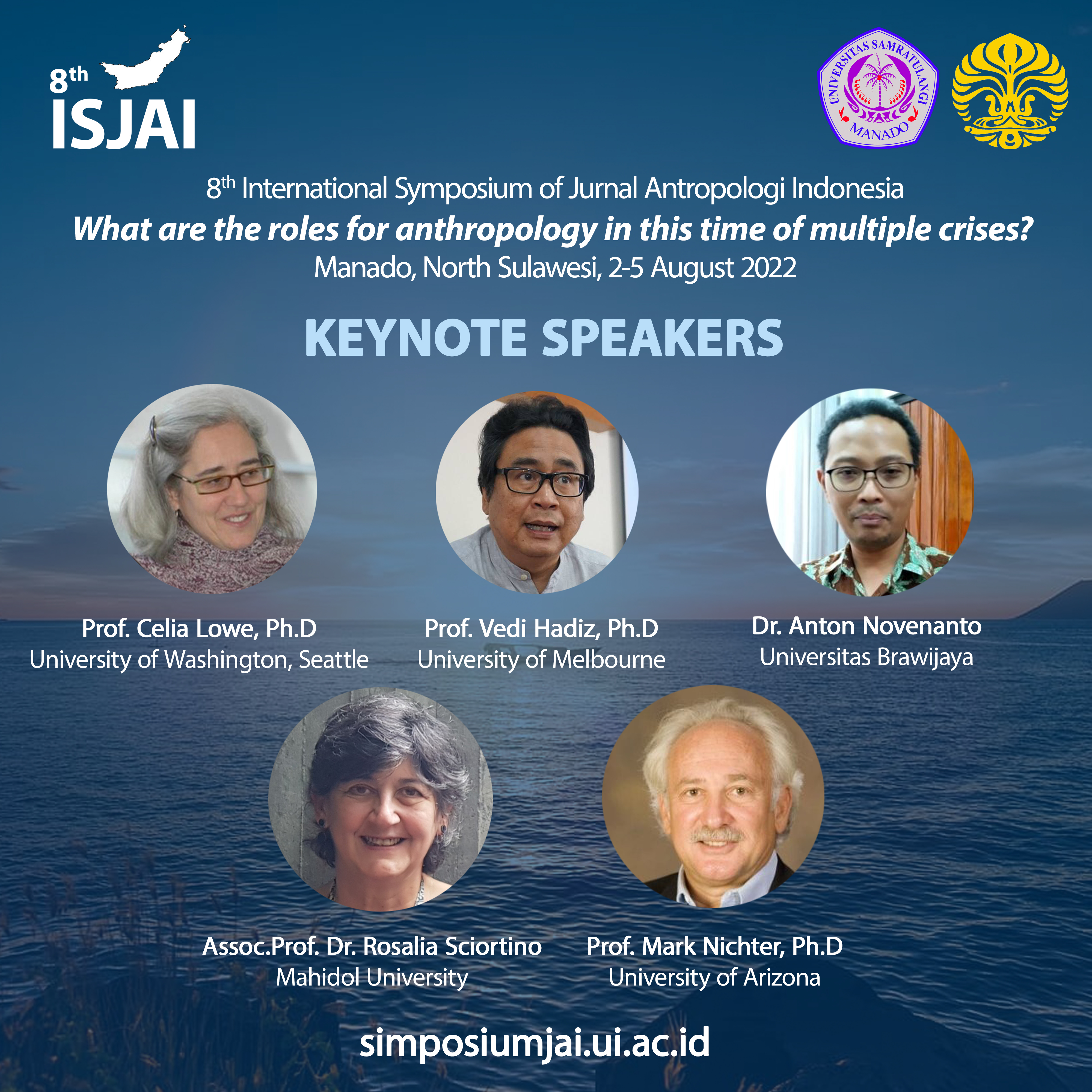Prof. Celia Lowe, Ph.D
Celia Lowe is Professor of Anthropology and International Studies and Director of the Southeast Asia Center at the University of Washington. Her work in Indonesia concerns the travels of scientific knowledge, expecially biological knowledge, between EuroAmerica and Southeast Asia. Her first book, Wild Profusion: Biodiversity Conservation in an Indonesian Archipelago, published by Princeton in 2006, examined the role of Indonesian’s conservation biology in the creation of a new national park. She is currently working on a book on the recent H5N1 avian influenza outbreak in Indonesia and is interested in the way new forms of biosecurity and risk were in play in relation to the disease. She contributes to work in the fields of science and technology studies, environmental humanities, and Southeast Asian studies.
Prof. Vedi Hadiz, Ph.D
Vedi Hadiz is Director and Professor of Asian Studies at the Asia Institute and an Assistant Deputy Vice-Chancellor International, University of Melbourne. He was previously Professor of Asian Societies and Politics at Murdoch University’s Asia Research Centre and Director of its Indonesia Research Programme. An Indonesian national, he was an Australian Research Council Future Fellow in 2010-2014. Professor Hadiz received his PhD at Murdoch University in 1996 where he was Research Fellow until he went to the National University of Singapore in 2000. At NUS, he was an Associate Professor in the Department of Sociology until returning to Murdoch in 2010. His research interests revolve around political sociology and political economy issues, especially those related to the contradictions of development in Indonesia and Southeast Asia more broadly, and more recently, in the Middle East.
Dr. Anton Novenanto
Assoc.Prof. Dr. Rosalia Sciortino
Dr. Rosalia (Lia) Sciortino Sumaryono, a cultural anthropologist and development sociologist by training, earned her master and doctorate at the Vrije Universities, Amsterdam with honors. Currently, she is Associate Professor at the Institute for Population and Social Research (IPSR), Mahidol University, Visiting Professor at the Master and PhD n International Development Studies (MAIDS/GRID), Chulalongkorn University in Thailand and Senior Social Development and Health Advisor to Empowering Indonesian Women for Poverty Reduction Program (MAMPU), a joint initiative of the Indonesian Ministry of National Development Planning (Bappenas) and the Australian Department of Foreign Affairs and Trade (DFAT) implemented by Cowater in Indonesia. She also recently founded and directs the Foundation for Southeast Asian Studies and its core activity SEA Junction, a public venue for interaction and cross-learning on Southeast Asia.
Prof. Mark Nichter, Ph.D
Prof. Nichter is a sociocultural anthropologist who specializes in medical anthropology and has considerable field experience in Global Health, health disparities, and ethnomedicine broadly defined. He have conducted research on a wide range of topics from child survival and reproductive health to emerging zoonotic and vector born diseases, and from mental health and chronic illness to pharmaceutical practice, tobacco control, and health systems and policy research. As an engaged anthropologist he have spent much of my life demonstrating how anthropology can contribute to real world problem solving through a multi-stage process of formative research. As a social theorist he study illness and healing as entry points for understanding identity projects, gender roles, the politics of responsibility, citizenship, biopolitics, biocommunicability, trust, and so much more. He have conducted research in South India as well as Sri Lanka and The Philippines, and have served in a support role for projects in Indonesia, Thailand, West Africa, Turkey, and Latin America. Aside from anthropology, He have postdoctoral training in Public Health and Psychiatry. To be a scholar activist requires a fair amount of reflexivity and involves many personal and professional challenges. On a lighter note, things that bring me joy are my family and friends, clear thought and glassy waves, harmony within non-linear and fluid complexity of coral reefs, poetry in motion, musical expression, and the aesthetics of everyday life.
